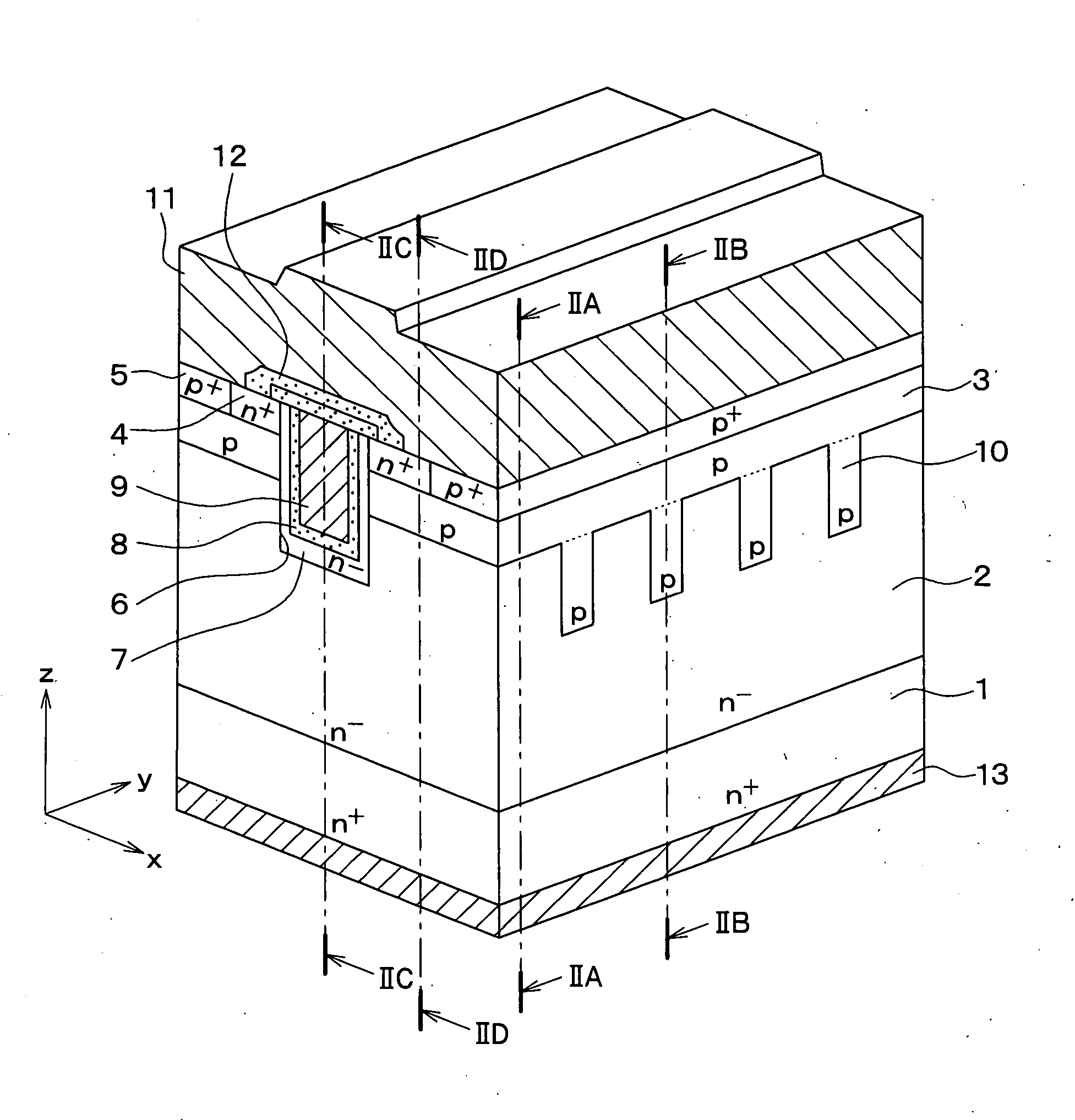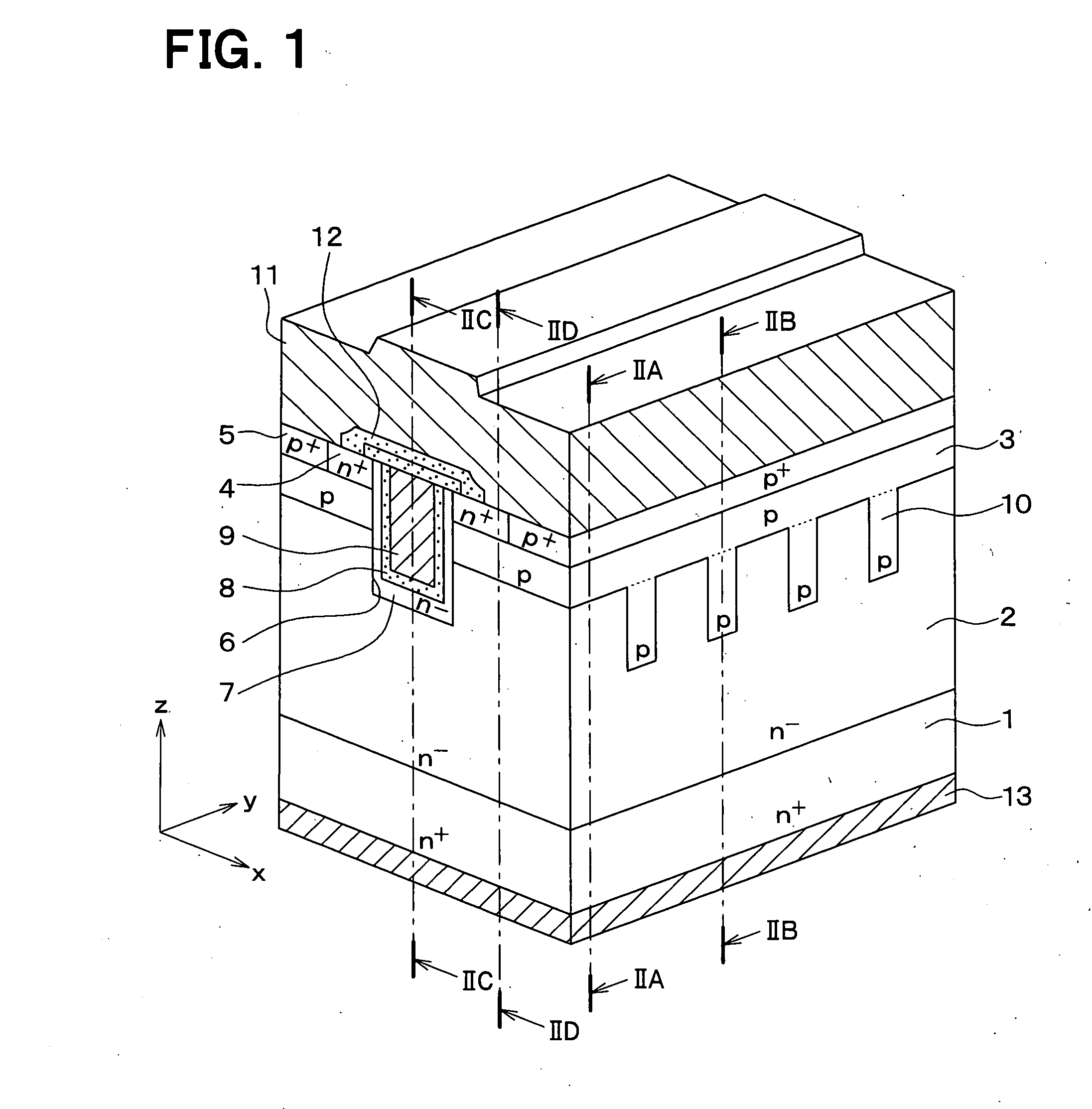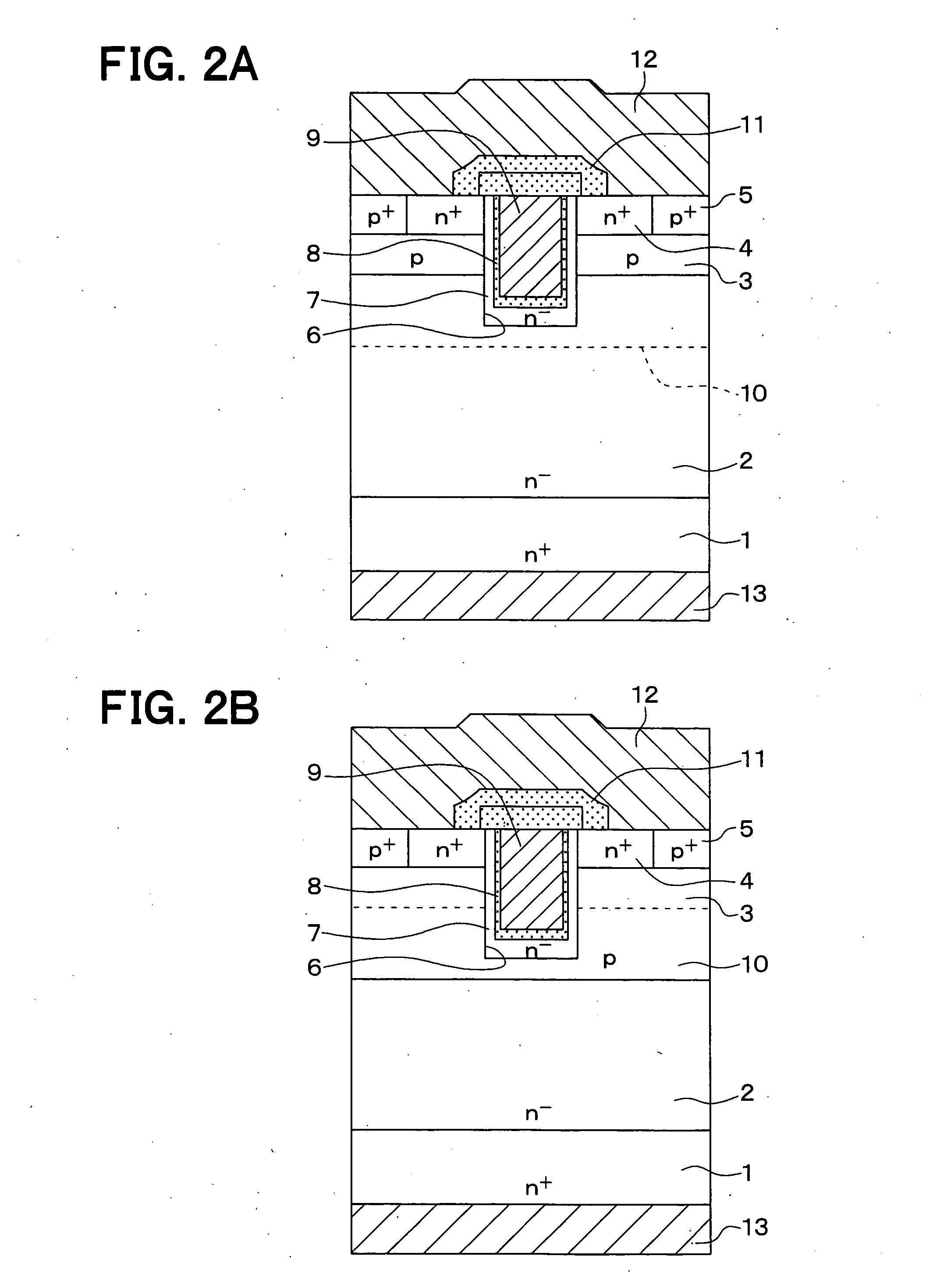Method for manufacturing silicon carbide semicondutor device having trench gate structure
a semiconductor device and trench gate technology, applied in the direction of semiconductor devices, basic electric elements, electrical equipment, etc., can solve the problems of insufficient concentration, gate insulation film damage at a corner of the trench, and difficulty, so as to improve the process window for forming the trench
- Summary
- Abstract
- Description
- Claims
- Application Information
AI Technical Summary
Benefits of technology
Problems solved by technology
Method used
Image
Examples
first embodiment
[0044]In view of the above requirement, a SiC semiconductor device according to a first embodiment is proposed. The device is an accumulation type trench gate MOSFET.
[0045]FIG. 1 shows a part of a MOSFET having a trench gate structure. The part corresponds to one cell in the MOSFET. Although FIG. 1 shows the one cell in the MOSFET, the MOSFET includes multiple cells, which are arranged adjacently along with a line. FIG. 2A shows a cross section of the MOSFET taken along line IIA-IIA in FIG. 1. Specifically, the cross section of FIG. 2A is taken along a X-Z plane passing through the line IIA-IIA in FIG. 1. FIG. 2B shows a cross section of the MOSFET taken along line IIB-IIB in FIG. 1. Specifically, the cross section of FIG. 2B is taken along a X-Z plane passing through the line IIB-IIB in FIG. 1. FIG. 2C shows a cross section of the MOSFET taken along line IIC-IIC in FIG. 1. Specifically, the cross section of FIG. 2C is taken along a Y-Z plane passing through the line IIC-IIC in FIG....
second embodiment
[0091]In a SiC semiconductor device according to a second embodiment, an on-state resistance is reduced.
[0092]FIG. 7 shows the SiC semiconductor device having a trench gate structure. FIG. 8A shows a cross section of the MOSFET taken along line VIIIA-VIIIA in FIG. 7. Specifically, the cross section of FIG. 8A is taken along a X-Z plane passing through the line VIIIA-VIIIA in FIG. 7. FIG. 8B shows a cross section of the MOSFET taken along line VIIIB-VIIIB in FIG. 7. Specifically, the cross section of FIG. 8B is taken along a X-Z plane passing through the line VIIIB-VIIIB in FIG. 7. FIG. 8C shows a cross section of the MOSFET taken along line VIIIC-VIIIC in FIG. 7. Specifically, the cross section of FIG. 8C is taken along a Y-Z plane passing through the line VIIIC-VIIIC in FIG. 7. FIG. 8D shows a cross section of the MOSFET taken along line VIIID-VIIID in FIG. 7. Specifically, the cross section of FIG. 8D is taken along a Y-Z plane passing through the line VIIID-VIIID in FIG. 7.
[0093]...
third embodiment
[0099]A SiC semiconductor device according to a third embodiment is similar to the device in FIG. 7. Specifically, the device in the present embodiment, the on-state resistance is reduced.
[0100]In the second embodiment, the device includes the current dispersion layer 30. However, the deep layer 10 is separated from the base region 3 with the current dispersion layer 30, so that the deep layer 10 becomes a floating state. Accordingly, the effect of the electric field relaxation is small, compared with a case where the deep layer 10 contacts the base region 3, and the electric potential of the deep layer 10 is fixed to the source potential. In view of this point, in the third embodiment, the on-state resistance of the device is improved.
[0101]FIG. 11 shows the SiC semiconductor device having a trench gate structure. FIG. 12A shows a cross section of the MOSFET taken along line XIIA-XIIA in FIG. 11. Specifically, the cross section of FIG. 12A is taken along a X-Z plane passing through...
PUM
| Property | Measurement | Unit |
|---|---|---|
| offset angle | aaaaa | aaaaa |
| offset angle | aaaaa | aaaaa |
| electric field | aaaaa | aaaaa |
Abstract
Description
Claims
Application Information
 Login to View More
Login to View More - R&D
- Intellectual Property
- Life Sciences
- Materials
- Tech Scout
- Unparalleled Data Quality
- Higher Quality Content
- 60% Fewer Hallucinations
Browse by: Latest US Patents, China's latest patents, Technical Efficacy Thesaurus, Application Domain, Technology Topic, Popular Technical Reports.
© 2025 PatSnap. All rights reserved.Legal|Privacy policy|Modern Slavery Act Transparency Statement|Sitemap|About US| Contact US: help@patsnap.com



